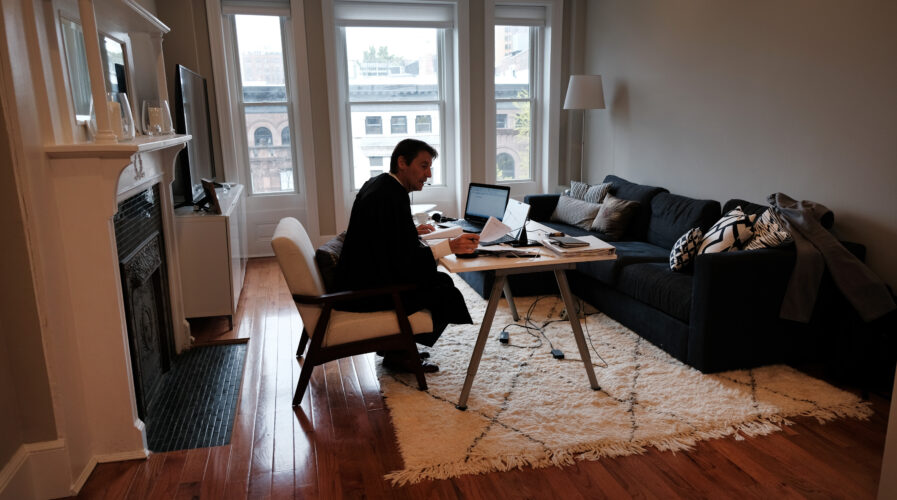
For tech workers, remote working is here to stay. Source;AFP
For tech workers, remote working is here to stay
- 96% of tech workers say WFH is here to stay and some believe remote working would improvement in diversity
- Some tech workers are even willing to take a pay cut to remain remote
- When it comes to the impact of remote work, the glass is half-full for some and half-empty for others
- More firms are planning to incorporate hybrid options combining remote and onsite work, with giving employees more autonomy to choose what works best for them in the future
Prior to the pandemic, tech companies have been at the forefront of remote working. This year, employees were given no choice but to carry out their jobs at home amid a global lockdown. Needless to say, the future of work is no longer an abstract concept.
What seemed like a distant prospect once has abruptly turned into an everyday reality for many businesses, courtesy of the Covid-19 pandemic. Ironically though, the pandemic has had a greater impact on flexible working in tech than it has in almost any other sector, according to a study by recruitment company Indeed.
Even Microsoft chief people officer Kathleen Hogan, on the Microsoft Blog, said about ways they are embracing a flexible workplace. She refers to the guidance they have provided covering three specific areas including worksite, hours, and location.
Slack CEO Stewart Butterfield also said that tech companies can’t bring employees back to the office even if they want to. In a FastCompany Innovation Festival event, he said, “If we say that everyone must return to the office, or we expect people to, and one of our competitors says you can work remotely, who wouldn’t take the second option there?
“There’s a market force at play. So I don’t know that individual companies are going to be able to opt-out.”
Tech professionals and remote working
Almost all tech employees (96%) believe remote work is here to stay, and most of them prefer it due to the greater flexibility (86%) and work-life balance (83%) it provides, according to Indeed which surveyed 616 US employees from the tech sector who worked in the office before Covid-19 and switched to full-time remote work.
Additionally, two-thirds of tech workers believe these shifts will increase workplace diversity, in terms of disability (79%), gender (77%), and race/ethnicity (72%), while some worry that a larger talent pool will increase competition, many are optimistic about the increased access to jobs. Some 60% of tech workers plan to search for remote positions within the next year, yet remain close to home.
“Just because there’s a pandemic doesn’t mean people have put their careers on hold, but their reasons for seeking new jobs varied. Nearly half (48%) of them are looking for a better salary. However, fear is also a motivator, with 44% and 38%, respectively, citing potential layoffs and furloughs,” it said.
Surprisingly, six out of 10 tech workers willing to take a pay cut to continue working from home. Since nearly half (48%) of the tech employees surveyed now have the option to work from home permanently, even though they weren’t doing so pre-Covid, not all, but only 95% intend to take their employers up on this offer.
The downside
When it comes to the impact of remote work, the glass is half-full for some and half-empty for others. For the 5% of respondents who want to go back to the office, 63% of them say working from home makes it harder to collaborate, while 62% cite the lack of social opportunities with coworkers.
In fact, half of this small yet vocal minority think working from home negatively impacts their career growth — and nearly half say they will look for a new job in an office if their employer switches to permanent remote work.
A slight majority (52%) worry about their future job prospects if more companies make the switch, due to increased competition from workers in other areas. However, 45% of tech workers believe the shift will make it easier for them to find a new job.
READ MORE
- The criticality of endpoint management in cybersecurity and operations
- Ethical AI: The renewed importance of safeguarding data and customer privacy in Generative AI applications
- How Japan balances AI-driven opportunities with cybersecurity needs
- Deploying SASE: Benchmarking your approach
- Insurance everywhere all at once: the digital transformation of the APAC insurance industry
